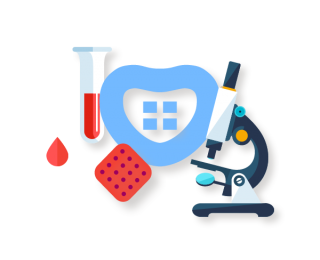Thyroid Testing
Comprehensive Thyroid Blood Testing. Take a deeper look at your health - order private blood tests for Thyroid function online.
No GP referral required.
No additional fees.
3 Easy Steps
to order your Blood Tests
- Order your tests & print your pathology request
- Visit a Collection Center near you.
No extra fees of any sort - Results by email & SMS to you within approx 24-48 hrs. *Rarer tests may be longer
Thyroid Function Test + RT3
$139.00 Ex Tax: $139.00
Click here to add more tests to this pack
Dr Tele-Consult - Option
$49.00 Ex Tax: $49.00
Easy to understand reference ranges for abnormal and normal tests supplied with all results
Abnormal results are reviewed by a AHPRA Registered Doctor and if applicable we will assist into appropriate medical care.
No extra charges or Lab fees
NATA accredited pathology. Australia wide
We are a direct access testing program using trusted NATA accredited Laboratories.
No Medicare card needed
No GP consult or referral required
No test refused
No Medicare - no linking of patient data
How do you find out if you have Thyroid problems?
Many Australians live with a thyroid condition, with 4% having an undiagnosed thyroid disorder. Symptoms can range from low energy, insomnia, depression and unexplained weight gain.
Thyroid Function Blood Testing can help check your thyroid gland is working properly. With a simple blood test, you can check your thyroid's hormone levels which is all that is needed for you to find out if you have a thyroid problem like hypothyroidism.
Why won't my Dr order FT3/FT4?
This isn't that your Dr is wanting to be unhelpful and wont order these tests for you. It is simply that Medicare will not allow them unless there is documented thyroid disease or abnormal TSH results. This is why only the TSH will show up even if your Dr orders FT3/FT4. With imedical this is all avoided and you will get the tests you are wanting.
Comprehensive Thyroid testing:
Monitor thyroid function and check your thyroid hormone levels. No Doctors/GP referral required. Confidential and Private Thyroid testing.
Below is a description of what is involved in each of the Thyroid Blood Tests.
TSH
A test for thyroid-stimulating hormone (TSH) is done to:
- Find out whether the thyroid gland is working properly.
- An underactive thyroid gland (hypothyroidism) can cause symptoms such as weight gain, tiredness, dry skin, constipation, a feeling of being too cold, or frequent menstrual periods.
- An overactive thyroid (hyperthyroidism) can cause symptoms such as weight loss, rapid heart rate, nervousness, diarrhoea, a feeling of being too hot, or irregular menstrual periods.
FT3 / FT4
The thyroid hormones Thyroxine (T4) and Triiodothyronine (T3) are produced and secreted by the thyroid gland.
Each molecule of T4 and T3 is made up of a protein and iodine (in the form of iodide). T4 contains 4 molecules of iodide and T3 contains 3 molecules of iodide – hence the names T4 and T3.
Thyroid hormones are the only compounds in the body that contain iodine. This is why dietary intake of iodine is important for thyroid health.
T4 is produced by the thyroid gland in much greater amounts than T3, around 90% more. This is because when T4 reaches organs and body tissue, it’s converted into T3.
So T4 is basically a stepping stone required for T3.
T3 is the active form of thyroid hormone in that it influences many body processes, in particular the regulation of metabolism.
Reverse T3
RT3 is a metabolite of T4 (thyroxine). Typically, when T4 loses an atom of iodine—a process known as monodeiodination, or T4 to T3 conversion—it becomes triiodothyronine (T3), the active thyroid hormone. But in some cases, the body conserves energy by converting the T4 instead into RT3, an inactive form of T3 that is incapable of delivering oxygen and energy to the cells, as T3 does.
Thyroglobulin ab (TGab), Thyroperoxidase ab (TPO)
A Thyroid Antibodies test looks for several types of antibodies which the body develops when a person has an autoimmune disorder. This test looks for Thyroid Peroxidase and Antithyroglobulin antibodies. These antibodies mistakenly target and damage the tissues and proteins of the thyroid gland. The disruption of normal thyroid function this causes can lead to disorders such as Graves Disease or Hashimotos Thyroiditis.
This testing is typically ordered when someone has symptoms of a thyroid disorder or has had irregular results from other thyroid tests such as TSH, T4 and T3. It may also be used when someone has been diagnosed with a thyroid disorder to help monitor their treatment. Pregnant women with an autoimmune disorder often have a Thyroid Antibodies test to help determine if their infant may be at risk for thyroid dysfunction.







 Sport Hormones
Sport Hormones Hormones General
Hormones General Thyroid
Thyroid Check ups
Check ups Metals
Metals STDs
STDs Other Tests
Other Tests Affiliated Medical Clinic Panels
Affiliated Medical Clinic Panels Build your own
Build your own